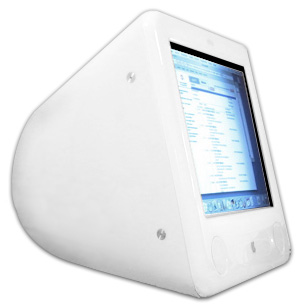Most of the time when a computer seems to have gotten slower, software is to blame.
Frequently lots of applications have been installed over the years and a computer has become cluttered with login items and background processes. Even when the offending apps are no longer in use, their daemons and updaters can stay alive.
When this happens, the computer really does slow down. Disused apps living in the background and competing for resources takes away from the OS and the apps you really do want to use and can slow things down. The more of this 'crud' that builds up, the slower the system can feel.
Contributing to the problem, hard drives do slow down a little bit as they fill up. If so many apps have been installed and files have been saved that the computer is seriously low on free space, performance can be impacted.
The other major component of this is that, as it is updated, software gets more and more complex and requires better and better hardware. When an app is updated, frequently it has some new features that take more power to run. Think about how OS X has gradually had more animation, graphics, and background functions added. The extra tax of having something like Autosave running constantly in the background could seriously impact a very old system, and something like Mission Control could be completely impossible.
However, since you've completely purged your system, none of these things are affecting you.
Hard drives do not really slow down over time; either they keep working well or they fail completely. See this Super User post for more details.
The same goes for other components: they keep working much the same until they die.
It is entirely possible that your expectations are playing a role here.
Tasks that would be strenuous on your eMac are trivial to your current computer, so you expect them to be instant. When they're not (because the computer has to work harder to get them done), it feels slow.
The other potential factor is the fact that (even though you're using old software) you're interacting with things that have been updated and are expecting users to be on newer systems.
Web pages have more images, JavaScript, and AJAX calls then they did in 2004, all of which take power to run. Images, videos, and music are recorded at higher resolutions and stored in less-compressed/higher-fidelity/more CPU intensive formats. Text documents are trending to become richer and have more formatting and metadata without considering that more media is likely to be embedded into them.
So, here's the test: If your recently-wiped computer feels slower when using the same apps, files, and websites you used in 2004, your expectations have changed.
Otherwise I would be inclined to blame crud, software surpassing hardware, the hard drive filling up, and interacting with newer resources (in that order).

